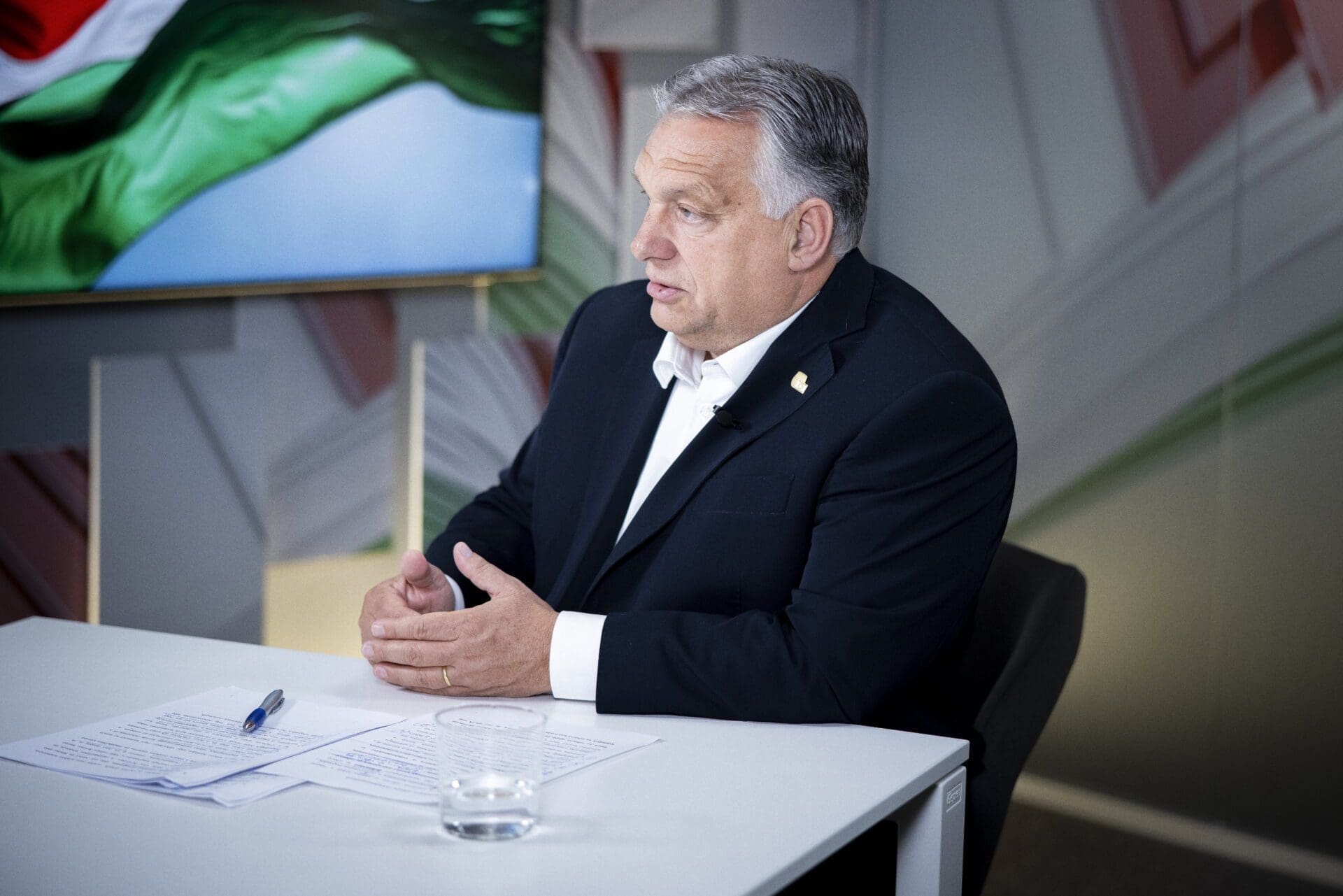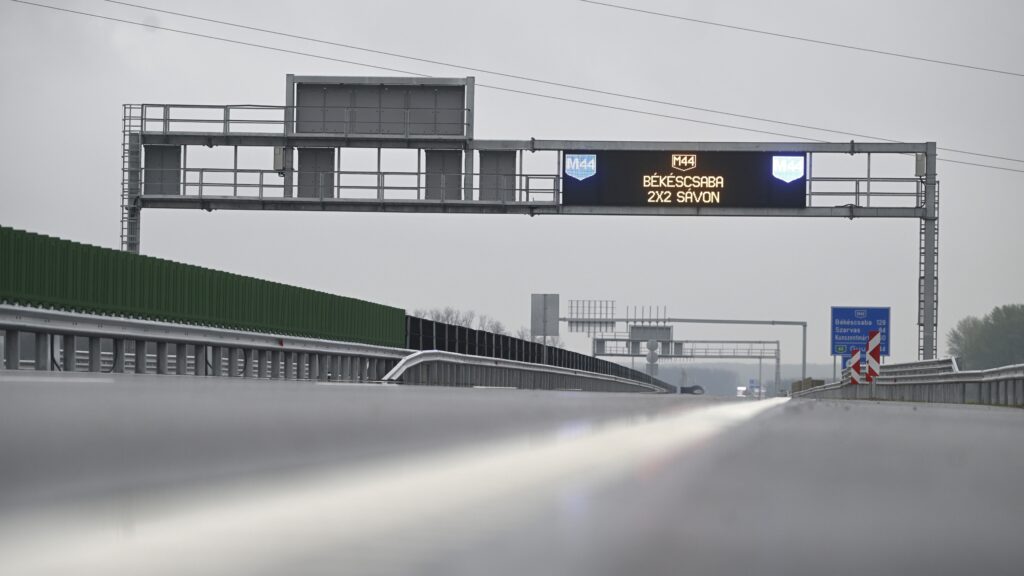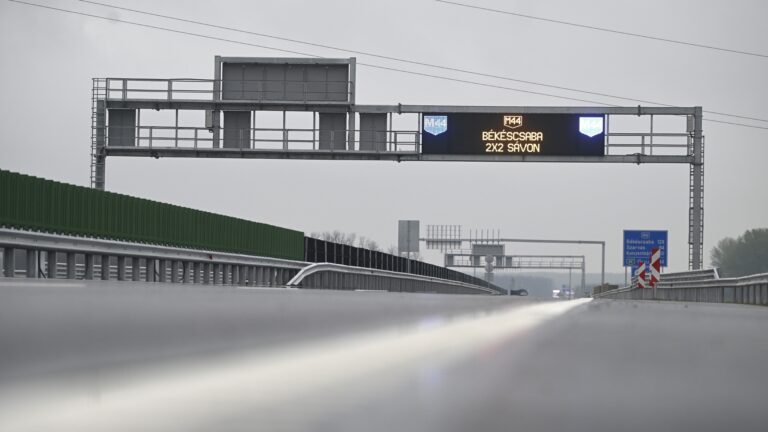‘Tusnádfürdő is an iconic place for Hungarian conservatives. What makes it interesting is that it defies categorisation. It is a liberal university, so we cannot define [my remarks there] as a speech, and [it is] not exactly a lecture, I would rather call it a presentation,’ Prime Minister Viktor Orbán noted in his usual Friday interview with public Kossuth radio.
‘When we seek the answer as to why the Hungarian left-wing is not stronger, we find it somewhere around provincialism. There is an intellectual spirit in modern politics,
but it doesn’t seem to be present on the Hungarian left,’
Orbán added, responding to domestic left-wing reactions to his Tusványos remarks.
Concerning foreign criticism, he mentioned his meeting with the Romanian prime minister and expressed his strong desire to establish good relations. He said he sees the new prime minister as a young, capable leader with whom he hopes will be able ‘to accomplish serious things’.
Slovakia is a more complicated case than Romania, as it will soon have elections, and Orbán believes that everyone is more nervous during such times. Additionally, there is a question in which the countries will not reach an agreement, and that is the issue of successor states [to Austria–Hungary following the Trianon Treaty.] ‘If we let this question into Hungarian–Slovak relations, there will be problems.’ He remarked, however, that he sees great opportunities in Slovak–Hungarian relations, while opining that ‘the Czechs are arguing among themselves’, and there’s nothing to be done about it.
Regarding the economy, he stated that two ‘meteorites’ have hit Hungary recently: the COVID-19 pandemic and the Russo-Ukrainian war. He remarked that war is different from Covid, as it does not endanger jobs, but it puts pressure on the Hungarian people in terms of higher energy prices and sanctions, leading to inflation. He emphasised the need to protect Hungarian families and highlighted that Hungarian families pay the lowest utility fees in the EU.
In his opinion, the Hungarian government needs to be sharp because multinational companies behave like speculators. Food retail chains raise prices even when there is no reason for it, using high energy costs as a pretext. At the same time, their leaders go to Brussels to complain about the Hungarian government and collude with the Brussels bureaucrats, the PM argued. ‘We have already imposed fines worth three billion forints because we don’t allow any cartels.’ In response to such conduct the authorities strike back, and it is necessary to do so, he declared, reiterating that the unjustified hikes in foodstuffs prices are ‘outrageous’.
Discussing the Russian aggression, Viktor Orbán suggested that this is no longer Ukraine’s war—albeit it is Ukrainians who suffer the most—as
their sovereignty has practically ceased to exist.
Any country that cannot sustain itself is, in his view, not sovereign, and war is expensive. ‘Ukraine has run out of strength; it is only Western money that keeps Ukraine alive.’
In Orbán’s view, when the Russians attacked Ukraine, the West had two options. One was, as it happened in the case of the Crimean Peninsula, to try to localise the conflict and say it is a conflict between two countries. ‘If we are not careful, it could even lead to a world war, so let’s try to localise the conflict. Merkel also did this. But if we get involved, then it elevates the conflict to a global level,’ he said.
According to the prime minister, there are two main questions now: how the President of the United States will decide regarding Ukraine and how he will approach the 2024 presidential election. This is something we cannot influence or answer. The other question is how long Europe can endure. ‘Through all sorts of financial manipulations, the Americans can produce a lot of money, but the euro is a different story; it is not suitable for this. We cannot produce money as easily as the Americans can…the European Commission comes and asks the member states for 100 billion euros in the middle of the EU’s seven-year budget cycle. Meanwhile the EU cannot fulfil its obligations towards the member states. This is also the situation for Hungary. The EU owes us. EU membership comes with payment obligations, and we fulfil them. But then they don’t give us the money that is rightfully ours,’ he explained.
According to him, among other things, the EU owes a significant amount of money for border protection and to the teachers because Brussels has pledged to assist in the faster improvement of teachers’ salaries. ‘We therefore pose the question, and not without reason, whether they owe us because they have spent the money that was meant for us on something else, like Ukraine. And there is no answer to this question today,’ he said.
Regarding whether this means that Hungary will not consent to the modification of the EU’s budget until the expected funds arrive, Orbán said that would be a rather unfriendly statement to make. Moreover, there is a clever rule in the EU, which says that loyal cooperation can be expected from member states. It means that unrelated matters should not be lumped together. Hungary must be cautious about what conditions it is willing to fulfil, as connecting unrelated issues is not fair or right, and it is also on bordering on illegality. ‘But there is a simultaneousness; it has happened before that decisions requiring unanimity coincided with decisions about Hungary’s funds. Well, if negotiations go that way, then, of course, we will have to handle that simultaneousness,’ he noted.
Lastly, the issue of migration was brought up. Orbán said that ‘he is not a supporter of the game’. He believes that those who let migrants in will not know enough about the ones arriving, will not be able to select them, will lose control, and eventually will feel like a minority in their own country. Allowing migrants into a country can ruin it, he said concluding the interview.
Related articles:
Source: Hungarian Conservative/Index/MTI








